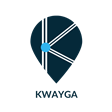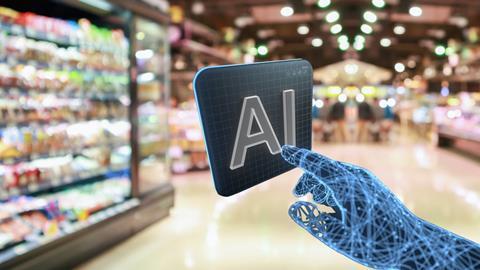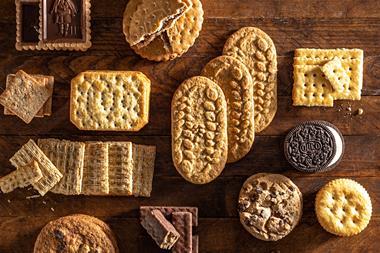As climate disruptions drive up costs for key commodities like coffee, cocoa, olive oil, and sugar, supermarket buyers can no longer rely on outdated sourcing methods. Discover why embracing AI-driven sourcing tools is crucial to staying competitive and resilient in the face of these supply chain challenges.
In today’s increasingly chaotic world, supermarket buying teams have more to worry about than ever before. Climate change, for example, is disrupting the supply of key commodities like coffee, cocoa, olive oil, sugar and related food products. The result? Soaring costs and shrinking margins. The reality is simple: waiting for the next crisis is no longer an option. Buyers who fail to embrace technology to tackle supply chain disruptions now will struggle to stay competitive.
Commodities: navigating climate chaos with efficiency
Coffee, cocoa, olive oil and sugar markets are facing severe disruptions due to climate change. In Vietnam, robusta coffee production has dropped by 15% due to droughts and torrential rains, while demand for instant coffee and espresso blends continues to surge, causing robusta prices to nearly double. In Brazil, the largest arabica producer, droughts and inconsistent rains threaten crop yields, pushing prices up by almost 40% this year.
Arabica Coffee soars to 13-year peak as Brazilian droughts intensify global supply shortage
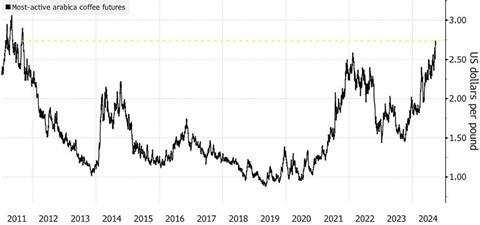
Source: ICE Futures US via Bloomberg
The sugar market faces similar challenges. Brazil’s sugarcane fields have been ravaged by fires and extreme droughts, driving up costs by 12% since the beginning of 2024.
Cocoa production in West Africa, which supplies 70% of the world’s cocoa, is also under pressure due to erratic weather patterns, including prolonged droughts and unpredictable rainfall. These disruptions, combined with pests and diseases, are driving up global cocoa and chocolate prices, creating additional challenges for supermarket buying teams.
As sugar and cocoa are essential ingredients in many food products, packaged food inflation in the UK has remained high at 3.3%.
Meanwhile, fresh food prices also saw an increase, with inflation rising to 1.5% in September from 1% in August. This was largely driven by a 42% year-on-year surge in olive oil prices, now averaging £9.12 per litre. The ONS (Office for National Statistics) reports that global olive oil production has hit a decade-low due to climate issues affecting key producers like Spain and Italy.
Basket prices
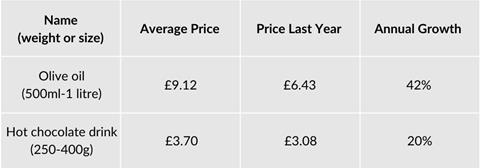
Source: Office for National Statistics (ONS)
The solution: embrace technology or fall behind

The question is no longer if you should adopt technology, but why wait? In the face of these disruptions, buyers need to stop relying on slow, outdated methods, as advanced AI-driven sourcing tools can help them identify and benchmark reliable suppliers across multiple regions in record time. By leveraging technology, buyers can quickly adapt their strategy, secure availability, avoid costly delays, and navigate the volatility of today’s markets.
Building resilience is key—having full visibility across your sourcing network and the ability to act swiftly when disruptions occur. AI tools allow buyers to quickly connect with the right suppliers, benchmark performance, and ensure compliance with quality and sustainability standards. The companies that adapt will not only survive but thrive, while those that cling to outdated practices will fall behind.
Case study: Achieving £300,000 in savings – a pasta sourcing success with Kwayga
A large buyer, with global operations, aimed to source dry pasta for a large tender, with key challenges around reducing costs, achieving market transparency, and expanding its supplier pipeline.
Within 24 hours of posting the request on Kwayga, the AI-driven system attracted 15 verified suppliers expressing interest. The buyer used the Kwayga process to shortlist and connect with 8 of them, obtaining indicative pricing, and negotiations progressed quickly. Ultimately, one supplier stood out, helping the buyer save £300,000. Kwayga’s game-changing technology and tools streamlined the process, providing full market transparency, efficient supplier benchmarking, and seamless communication—saving the buyer both time and money.
Other success stories
Supermarket buyers using Kwayga have seen remarkable results:
● One retailer saved over €2m in a single SKU.
● Another replaced a supplier with no capacity and had products on shelves within six weeks, just in time for a special promotion.
● Several supermarkets diversified product ranges by connecting with high-quality suppliers from multiple countries—all in record time.
Tech is the key to future-proofing your supply chain
The supermarket supply chain is more volatile than ever, and outdated methods simply cannot keep pace. AI-driven tools allow buyers to streamline processes, manage supplier risks, and stay efficient, even in turbulent markets.
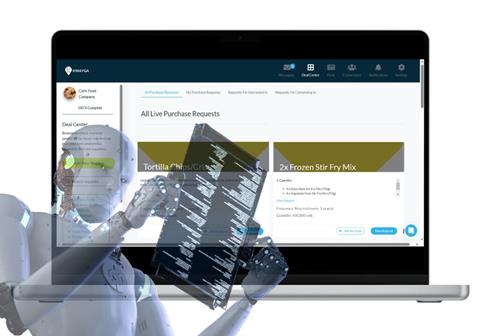
A buyer recently reported: “Yesterday I went from meeting to meeting, I had one hour at lunchtime to eat and catch up on emails.” Kwayga is completely disrupting how buying teams source, allowing buyers to do in hours and days what previously took days and months, cutting sourcing time by 40%, automatically (and initially anonymously) matching purchase requests with a vast network of over 100,000 food and drink suppliers worldwide, ensuring a high-quality match and current capacity. Our game-changing technology tools don’t just speed up sourcing, they automate due diligence and supplier benchmarking, and provide full market transparency, allowing teams to make fast, informed decisions. By automating routine tasks like pricing, sample requests, and RFIs, Kwayga frees up buying teams to focus on high-value strategic work.
With Kwayga, you gain unparalleled speed, efficiency, and cost savings while maintaining complete control over your team’s activities. Leading brands like Aramark, Aldi, Lidl, and Dunnes Stores trust Kwayga to stay resilient and ahead of disruptions in today’s rapidly evolving market.
Supermarket buyers, it’s time to stop viewing technology as a ‘nice to have’ and start seeing it as your secret weapon. If you’re not using these tools to outsmart supply chain disruptions, your competitors most certainly are.
To find out more about Kwayga, please visit www.kwayga.com.
